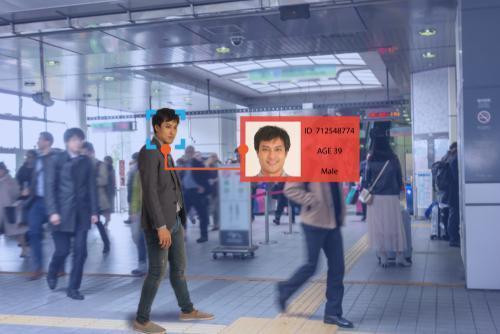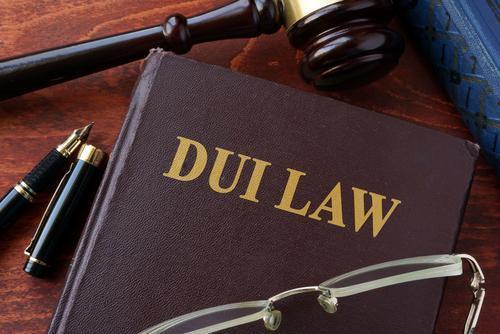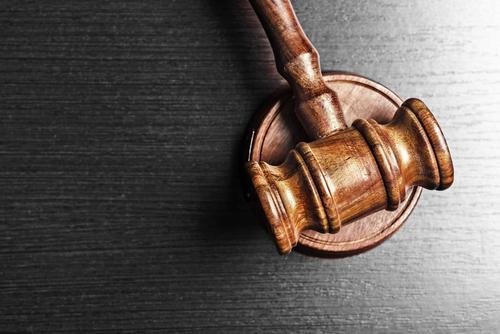Recent Blog Posts
How Do Fourth Amendment Rights Apply to Digital Evidence?
 The Fourth Amendment to the U.S. Constitution states that all citizens have the right to be free from unreasonable searches and seizures by the government without a warrant. This provides protection against unfair tactics by prosecutors when a person is facing criminal charges. However, in the 21st century, the increased use of digital media has resulted in a slew of complexities in criminal cases. The Fourth Amendment was written to protect the privacy of American citizens, but what happens when your private digital files are no longer private to only you? In some cases, the "private search doctrine" may apply.
The Fourth Amendment to the U.S. Constitution states that all citizens have the right to be free from unreasonable searches and seizures by the government without a warrant. This provides protection against unfair tactics by prosecutors when a person is facing criminal charges. However, in the 21st century, the increased use of digital media has resulted in a slew of complexities in criminal cases. The Fourth Amendment was written to protect the privacy of American citizens, but what happens when your private digital files are no longer private to only you? In some cases, the "private search doctrine" may apply.
What Is the Private Search Doctrine?
Using the private search doctrine, once a private party (who is not involved with the government) has already done an initial search, the government can repeat that search without infringing upon the property owner’s individual Fourth Amendment rights. Basically, the private search doctrine allows the government to perform a search that is not technically a search in the Constitutional sense.
How Is Cell Phone Data Used in Criminal Cases?
 In today’s world, there are many technological advances that previous generations could not even dream of being possible. As the world of technology has advanced, so has the world of forensics. Advancements in technology have also allowed advancements in gathering evidence and processing that evidence for use in criminal cases. Cell phones are one such piece of technology that is used all over the world as a source of criminal evidence.
In today’s world, there are many technological advances that previous generations could not even dream of being possible. As the world of technology has advanced, so has the world of forensics. Advancements in technology have also allowed advancements in gathering evidence and processing that evidence for use in criminal cases. Cell phones are one such piece of technology that is used all over the world as a source of criminal evidence.
What Kind of Data Is Used as Evidence?
Cell phones - especially smartphones - gather, process, and store all kinds of data. From the text messages you send and receive, the photos you share, or the websites you visit, almost everything you do on your phone is stored and can be retrieved, even if you have deleted it. Some common types of data that can be retrieved from cell phones include:
- Text message records, including both SMS messages and multimedia messages
How Can Facial Recognition Technology Affect My Criminal Case?
 Since the 1990s, facial recognition technology has become more and more common. What was once just wishful and futuristic thinking is now present in our everyday lives in the United States. Home security devices use facial recognition to identify whether or not a visitor is someone you know. Some airports have implemented facial recognition software at check-in terminals to confirm your identity when you fly. Perhaps the most disturbing use of facial recognition technology is when it is used by law enforcement officials in criminal cases.
Since the 1990s, facial recognition technology has become more and more common. What was once just wishful and futuristic thinking is now present in our everyday lives in the United States. Home security devices use facial recognition to identify whether or not a visitor is someone you know. Some airports have implemented facial recognition software at check-in terminals to confirm your identity when you fly. Perhaps the most disturbing use of facial recognition technology is when it is used by law enforcement officials in criminal cases.
Federal Agencies Use Facial Recognition Technology
According to The Washington Post, the Federal Bureau of Investigation (FBI) and Immigration and Customs Enforcement (ICE) have been using various states’ driver’s license databases to access photos of millions of Americans without their knowledge or permission. The FBI has long had access to biometric data such as DNA and fingerprints - but that data was taken from criminal suspects. The majority of the estimated 640 million photos the FBI has access to are of Americans who have never been charged with a crime. Facial recognition searches have become a routine investigative tool by the FBI, but many have argued against the effectiveness of this relatively new technology.
Connecticut Joins Other States in Banning the "Gay Panic" Defense
 Crimes committed against members of the LGBTQ community have risen slightly over the past three years. According to data from the Federal Bureau of Investigation (FBI), most hate crimes are based on bias toward race and religion, but the number of hate crimes (which may include assault or other violent crimes) based on sexual orientation has risen each year between 2014 and 2017. In 2017, there were 1,130 hate crime incidents reported to the FBI that were based on sexual orientation. In some cases, when the alleged offenders are prosecuted, their defense attorneys use what is called the "gay panic" defense. In recent years, this defense has been outlawed in many states, and Connecticut recently joined the group of states who do not consider the gay panic defense as a legitimate defense strategy.
Crimes committed against members of the LGBTQ community have risen slightly over the past three years. According to data from the Federal Bureau of Investigation (FBI), most hate crimes are based on bias toward race and religion, but the number of hate crimes (which may include assault or other violent crimes) based on sexual orientation has risen each year between 2014 and 2017. In 2017, there were 1,130 hate crime incidents reported to the FBI that were based on sexual orientation. In some cases, when the alleged offenders are prosecuted, their defense attorneys use what is called the "gay panic" defense. In recent years, this defense has been outlawed in many states, and Connecticut recently joined the group of states who do not consider the gay panic defense as a legitimate defense strategy.
What Is the "Gay Panic" Defense?
A person who allegedly committed assault or murder against a person may claim that they did so because of the alleged victim’s sexual orientation or gender identity. This type of strategy may involve claims of insanity or diminished capacity that occurred due to an interaction with a person who is gay or transgender. An alleged offender may also claim that they were provoked to commit a violent offense because of sexual advances made by the alleged victim. The gay panic defense is often seen as blaming the alleged victim’s sexual orientation or gender identity for the alleged offender’s actions. Those who oppose the use of this defense have stated that it may be used to justify and excuse the assault or murder of LGBTQ victims.
Supreme Court Ruling Allows Warrantless Blood Draws in DUI Cases
 In all 50 states, it is illegal to drive while you are under the influence of alcohol. If you have a blood alcohol content of more than .08 percent, you can be charged with DUI. If you are pulled over on suspicion of drunk driving, you may be asked to complete a chemical test to determine your BAC. This type of roadside breathalyzer test is used during a traffic stop to establish probable cause. After an arrest, you will be taken to the police station, where there is more accurate equipment that can establish a BAC that will hold up in court. In certain cases, however, a breath test may not always be feasible. In these cases, a urine or blood test may be used. Most of the time, a warrant must be issued before an officer can take a blood sample, though the Supreme Court recently upheld a decision which found that a warrant may not be necessary in some cases.
In all 50 states, it is illegal to drive while you are under the influence of alcohol. If you have a blood alcohol content of more than .08 percent, you can be charged with DUI. If you are pulled over on suspicion of drunk driving, you may be asked to complete a chemical test to determine your BAC. This type of roadside breathalyzer test is used during a traffic stop to establish probable cause. After an arrest, you will be taken to the police station, where there is more accurate equipment that can establish a BAC that will hold up in court. In certain cases, however, a breath test may not always be feasible. In these cases, a urine or blood test may be used. Most of the time, a warrant must be issued before an officer can take a blood sample, though the Supreme Court recently upheld a decision which found that a warrant may not be necessary in some cases.
Can a Teen Become a Sex Offender for Sharing Selfies?
 Advances in technology are constantly happening. Every day, it seems as if there is a new device, app, or way of digitally communicating with one another. While technological advancement and evolving behaviors can be beneficial for society, they often pose legal problems. A relatively new act called "sexting" is one of the latest challenges that has been posed to lawmakers across the country, and both parents and children should be aware of the potential sex crime charges that could result from this type of activity.
Advances in technology are constantly happening. Every day, it seems as if there is a new device, app, or way of digitally communicating with one another. While technological advancement and evolving behaviors can be beneficial for society, they often pose legal problems. A relatively new act called "sexting" is one of the latest challenges that has been posed to lawmakers across the country, and both parents and children should be aware of the potential sex crime charges that could result from this type of activity.
What Is "Sexting?"
Sexting is a type of sexual behavior that occurs when two people consensually share explicit photos, videos, or messages through an electronic device. According to a study published in the journal JAMA Pediatrics, around 27 percent of teenagers say that they have received such a text message, while 15 percent of teens admitted that they have sent such a message.
When Can Blood Samples Be Used in Connecticut DUI Cases?
 In Connecticut, you may face charges of driving under the influence (DUI) if you operate a vehicle while intoxicated by drugs or alcohol or if your blood alcohol concentration (BAC) is .08% or higher. If you are arrested for DUI, you will be asked to perform a chemical test to determine your BAC, and this may be either a blood, breath, or urine test. Though chemical breath tests are most commonly used to determine BAC, other methods may be more accurate, and it is not unheard of to be asked to provide a blood sample.
In Connecticut, you may face charges of driving under the influence (DUI) if you operate a vehicle while intoxicated by drugs or alcohol or if your blood alcohol concentration (BAC) is .08% or higher. If you are arrested for DUI, you will be asked to perform a chemical test to determine your BAC, and this may be either a blood, breath, or urine test. Though chemical breath tests are most commonly used to determine BAC, other methods may be more accurate, and it is not unheard of to be asked to provide a blood sample.
Requirements for Using Chemical Tests as Evidence
The point of collecting a sample of a suspect’s blood, breath or urine is to have hard evidence of the amount of alcohol or drugs in the person’s system at the time of the arrest. This evidence may be used to demonstrate that a driver was intoxicated, but in order for the evidence to be admissible in Connecticut courts, there are six requirements that must be met:
Connecticut Bond Criteria Changed by Superior Court Judges
 For the past couple of years, increased focus has been placed on the criminal justice system and making it more fair for everyone. One of the facets of the system that has received increased scrutiny lately is the bail and bond system. Proponents of change say the current bail system is unfairly biased in favor of wealthier individuals, since they have the ability to post bail or bond without issue. Because of this, a committee of Connecticut Superior Court judges has been considering whether or not to implement new rules and criteria for posting bond, which would make it easier for low-income individuals to remain outside of jail during their criminal trials. The committee recently voted unanimously to implement new rules for posting bond.
For the past couple of years, increased focus has been placed on the criminal justice system and making it more fair for everyone. One of the facets of the system that has received increased scrutiny lately is the bail and bond system. Proponents of change say the current bail system is unfairly biased in favor of wealthier individuals, since they have the ability to post bail or bond without issue. Because of this, a committee of Connecticut Superior Court judges has been considering whether or not to implement new rules and criteria for posting bond, which would make it easier for low-income individuals to remain outside of jail during their criminal trials. The committee recently voted unanimously to implement new rules for posting bond.
Low-Income Defendants are Permitted to Post Only a Percentage of Bond
A new rule was recently approved by the committee of Superior Court judges that would allow defendants who are considered to be low income to post 10 percent of their bond in cash, as long as the bond amount is $20,000 or less. This amount would then be returned to the defendant at the conclusion of the case. The committee stated that this new rule would allow low-income defendants to keep their money, rather than using a bail bondsman, who typically charges a 10 percent fee. The 10 percent cash bond would be given to the court or the police department in exchange for letting the defendant out of jail during the course of the case. The cash bond is a promise that the defendant will show up at future court proceedings; if the defendant skips out on future proceedings, the bond is forfeited, and the defendant will be responsible for paying the remaining 90 percent.
Can I Be Tried for the Same Crime in Both Federal and State Courts?
 Most people are familiar with the term “double jeopardy,” or they have probably at least heard of the concept. Protection against double jeopardy is written into the Fifth Amendment to the United States Constitution, which states that “no person shall...be subject for the same offense to be twice put in jeopardy of life or limb…” Basically, this provides U.S. citizens with protection against being tried more than once for the same crime. This issue typically arises when a person allegedly commits a criminal offense in more than one state or jurisdiction. Recently, the Supreme Court dealt with this issue by looking at whether or not those facing criminal charges could be tried for the same crime in both state and federal courts.
Most people are familiar with the term “double jeopardy,” or they have probably at least heard of the concept. Protection against double jeopardy is written into the Fifth Amendment to the United States Constitution, which states that “no person shall...be subject for the same offense to be twice put in jeopardy of life or limb…” Basically, this provides U.S. citizens with protection against being tried more than once for the same crime. This issue typically arises when a person allegedly commits a criminal offense in more than one state or jurisdiction. Recently, the Supreme Court dealt with this issue by looking at whether or not those facing criminal charges could be tried for the same crime in both state and federal courts.
Recent Supreme Court Case Upholds Precedent
The case that made it to the Supreme Court dealt with a man who is currently a federal prison inmate. The Alabama man appealed to the Supreme Court after he was charged on both the state and federal level for possessing a gun after a previous felony robbery conviction. On the state level, he was sentenced to one year in prison. When tried for the same crime on the federal level, he was sentenced to 46 months in federal prison, a sentence that was to run concurrently with the other sentence.
New Connecticut Law on Statute of Limitations in Sexual Misconduct Cases
In the wake of the viral "Me Too" movement that swept across social media in recent years, many state and local jurisdictions have taken a second look at their current sexual assault laws to determine whether changes should be made. Connecticut is the latest state to pass legislation concerning sexual misconduct laws. The Connecticut legislature recently voted to pass a bill that would make a number of changes to state law, including extending the statute of limitations for prosecuting sexual assault charges.
Disagreement Among House Members
Though the bill passed unanimously in the Senate, the vote in the House was not as one-sided. The bill passed by a vote of 121-23, with those 23 naysayers expressing worries about the changes to the law. One member suggested that a person’s memories are not always accurate as time goes on, and a longer statute of limitations could mean that a person may be accused of sex crimes based on untrustworthy testimony. Another member was concerned with the bill’s possible interference with the constitutional right to a fair and speedy trial. Proponents of the bill have stated that lengthening the statute of limitations helps the victims but does not detract from the rights of the accused, because the burden of proof will remain the same.







